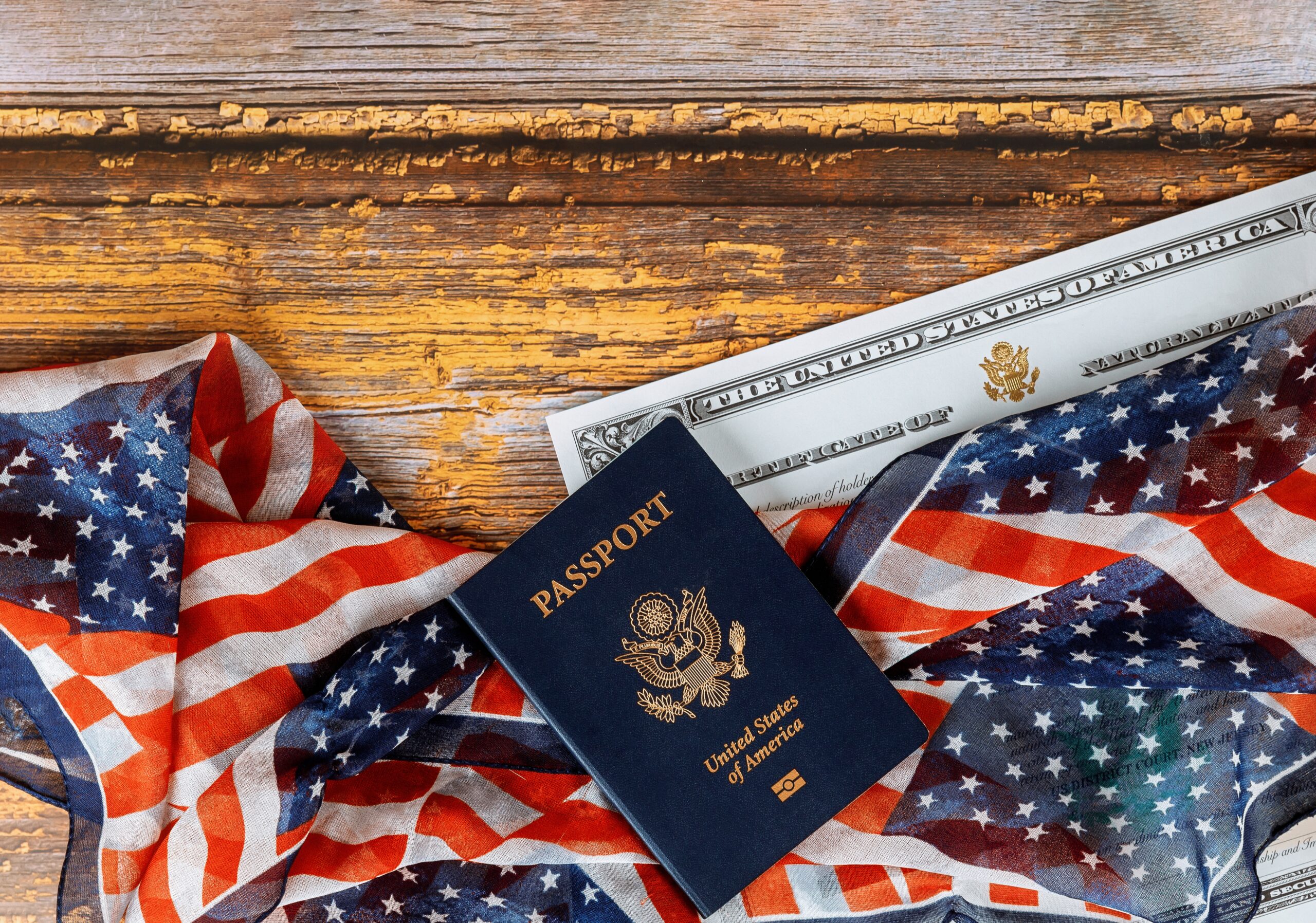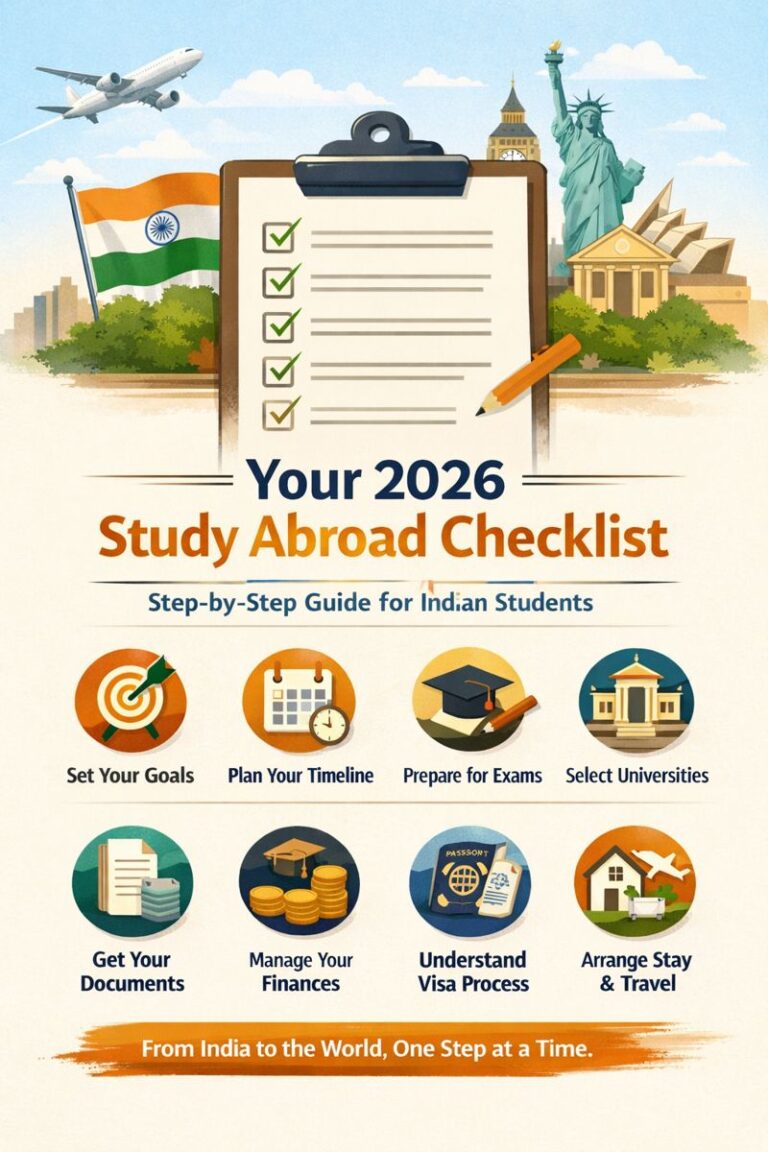These are some common questions you may hear during an F1 visa interview. If these questions sound daunting, do not worry. We have some actionable tips that will help you ace your interview.
In this guide, we will help you understand the F1 visa interview process and prepare to answer the most commonly asked questions at the interview.

Preparing for the F1 Visa interview
An F1 Visa interview isn’t exactly a cakewalk, but it’s also not impossible. With the right preparation, you can ace your interview and sit back to wait for your visa. Just like the video interview for admission to your intended university in the USA, the visa interview is also a formal interaction.
Prepare for the F1 visa interview like you would for your college admission interview. Find all the common questions that interviewers generally ask and then practice your responses. Other than this, you also need to ensure that you come across as a professional candidate through your communication, outfit, mannerisms, and document preparation. Read on to learn everything.
Also Read: Study Abroad Guide for Indian Students 2025
Documents to carry for an F1 Visa interview
The visa officer may ask you for any relevant documents. Here is a list of documents to carry for an F1 Visa interview:
- A passport that is valid for at least six months after your intended stay in the USA
- Your visa application/Form DS-160 confirmation page
- Form DS-160 fee receipt
- SEVIS fee receipt
- Form I-20
- Academic transcripts
- Photographs
- Standardized academic test results (GMAT/ GRE/ SAT/ ACT)
- English language test results (IELTS/ TOEFL/ PTE/ DTE)
- Proof of funds (bank statements, sponsorship affidavit, scholarship letters, or education loan approval letters)
- Proof of your intent to return to your native country after graduation
Dress code for an F1 Visa interview
Creating a good first impression is important. If you are presenting yourself well, you will feel confident about your responses as well. Although there isn’t any official dress code for an F1 visa interview, the following tips will help you dress appropriately:
- This is a formal event. So, dress formally.
- Avoid accessorizing too much. Wearing heavy jewelry or accessories for the interview may distract the consulate officer. So, keep it simple with one or two things, like a watch or religious pieces.
- Avoid wearing flashy or bright colors. Stick to neutral or pastel tones. You can go for navy, white, gray, mauve, baby blue, etc.
- When it comes to perfumes, going for light or neutral scents would be a great option. Some people might be allergic to certain scents or find strong scents overpowering.
- Lastly, make sure to groom yourself well. You can do so by maintaining hygiene, wearing the appropriate amount and style of make-up, and keeping your hairstyle simple and professional.
General tips for answering F1 visa interview questions
Here are some general tips that will help you present a confident self during an F1 Visa interview:
- Prepare well: If you’re going for an event as important as your F1 visa interview, preparation is an absolute necessity. Go through your documentation and application. Review some common questions about your program, university, reasons to study in the USA, intentions after graduation, financial situation, etc. If you have thoroughly reviewed it all, you can answer any relevant questions with clarity and confidence. Remember, nervousness might cost you the visa.
- Prove strong ties: The F1 visa is a nonimmigrant visa, which implies that you will be returning to your native country after graduating. So, during your F1 Visa interview, you must be able to demonstrate your intentions of coming back to India. You can do so by proving that you have strong ties with your country.
- Show confidence: Your responses to the F1 Visa interview questions must be honest, confident, and clear. You must be truthful about your academic or professional background, financial situation, plans, and other intentions. You must also be able to back your responses with solid proof or documentation.
- Show financial support: Under INA section 212(a)(4), the US government needs to ensure you will not become a “public charge” (dependent on government assistance). To prove that, you need to show your financial records or relevant affidavit of sponsorships for the duration of your program. You must prove that you can financially support your tuition and living expenses in the USA for at least the first year of your program. So, for finance-related questions, make sure to have proper documents and prepare your responses.
- Stay professional: The F1 Visa interview is a formal process. So, you must approach it with professionalism. Dress appropriately (you can find the tips in the previous section). Be polite, confident, and clear. Maintain eye contact and stay calm during the conversation.
Also Read: New F1 Visa Rules for USA: All You Need To Know
7 common F1 visa interview questions and tips to answer them
Let’s go through some commonly asked F1 visa interview questions and the right ways to answer them:
Why do you want to continue your education in the USA instead of India?
Tips:
With this question, your consulate officer wants to understand the reason behind choosing the USA over your home country and other popular study-abroad destinations in the world. So, focus on the unique opportunities offered by the education system and/or universities of the USA. Emphasize on research opportunities and practical learning. However, make sure to not imply dissatisfaction with the education system of India.
An example of the response:
“My aim with this degree is to gain global exposure, interact with professionals from different backgrounds, and take advantage of hands-on research. The education system in the USA offers all this along with flexible coursework, which is essential for my area of study.”
Why did you choose your institute’s name?
Tips:
Instead of saying things like, “It’s a good university,” you should be specific. Talk about the research you put into finalizing a university, its unique features, its courses, faculty, research facilities, etc.
An example of the response:
“My area of interest is ABC. Through my research, I found out that this institute is one of the highly-ranked universities offering programs focused on my area of interest. The curriculum perfectly aligns with my career goals.”
What are your plans after you graduate?
As mentioned previously, you will have to return to India after graduating. So, with this important question, the visa officer will evaluate your long-term plans. If you fail to demonstrate strong ties with India and your intention of returning to it post-graduation, this may cost you the visa.
So, if you already have a job offer in India, talk about that. If not, mention the contribution of your preferred program in the USA to your future career in India. Avoid talking about your intentions of permanently moving to the USA.
How will you fund your program in the USA?
This is a very important question as it will help the visa officer understand your financial situation. You must demonstrate your financial capabilities. Your documentation and response should ensure that you have enough resources to pay for your tuition and living expenses without depending on employment in the USA.
Be ready to present your financial plan through scholarships, family support, or education loans. Bring your bank statements, loan approval letter, your parents’ bank statements (if they’re supporting you), scholarship letter, or affidavits proving sponsorship.
Can you show me your academic transcripts?
You must gather all your academic records and relevant paperwork in advance. You can show your marksheets, passing certificates, I-20 Form, visa application confirmation page (DS-160 Form), application fee receipts, etc.
You may also be asked to show your English test scores (IELTS, TOEFL, DTE, PTE, etc.) or standardized academic tests like the GMAT, GRE, SAT, and ACT. So, keep your test results handy.
Do you plan on working in the USA while completing your course?
With an F1 Visa, you can work in the USA on a part-time basis while the school is in session and full-time during vacations. So, if you are planning to work while completing your course, you can mention that during the interview.
However, try not to suggest that you will be taking this route to cover the expenses for your education in the country. The authorities need to ensure you are financially capable of paying for your education without having to rely on employment. So, make sure not to emphasize on the monetary benefits of working in the USA to pay for your education. Instead, talk about how this will help you build connections and gain professional knowledge and exposure even before graduating.
Where will you be staying in the USA?
Whether you have secured housing through your school or are planning to stay with your relatives, mention your accommodation plan. You can also show documents proving that you’ve made adequate accommodation arrangements for yourself.
Also Read: Student Visa for USA for Indian Students in 2025 (Guide)
Dos and Don’ts during an F1 visa interview for the USA
A list of dos and don’ts will help you learn the things you should and shouldn’t do at the time of an F1 Visa interview.
Dos during the F1 Student Visa interview
- Be professional and polite: Since it’s a formal interview, greet the interviewer with a smile and a polite “good afternoon” or “good morning.” Maintain a calm and respectful tone throughout the interview. End by thanking the consulate officer for the interview and their time.
- Maintain eye contact: Maintaining eye contact in a normal and non-threatening way depicts confidence. It is also a great way for you to show engagement. Eye contact will help you build a connection with the officer. It will also demonstrate that you are comfortable answering the F1 visa interview questions.
- Be concise and relevant: Your consulate officer may have many questions about your application, documentation, or finances. The interview may take a long time, so keep your responses to the point and brief. With some advance preparation through the tips for common questions in the previous section, you can do this.
- Speak English well: You need to be proficient in the English language to get an F1 Visa and study in the USA. This interview can prove your English language skills by articulating your responses and keeping the communication smooth.
- Demonstrate strong home ties: With every question, direct or indirect, make sure that you establish strong ties with your home country, India. You need to prove that you will be returning to India after your program ends.
Don’ts during the F1 Student Visa interview
- Don’t be nervous: If you have prepared well for the interview, have the right paperwork, and entered true and complete information in your application, there is no need to be nervous. Your nervousness might affect your communication skills and make your forget important details while answering questions.
- Don’t prepare too much: Preparing in advance is great. But don’t memorize your responses. This may make you sound disingenuous.
- Avoid vague and evasive responses: Don’t answer questions with “I don’t know” or “I’m not sure.” Be clear and specific with your responses. If the interviewer asks you about your financial situation or plans, give them well-thought-out and clear answers.
- Don’t forget your documents: You must bring all the relevant documents with you to the interview. Keep all the documents prepared, from your I-20 Form to DS-160 submission confirmation to the SEVIS fee receipt.
- Don’t offer documents without asking: Carry all documents, but don’t offer unless the visa officer asks for them.
Working on an F1 Visa
Your F1 visa allows you to work if you are enrolled in a full-time language training or academic program in an SEVP-approved university in the USA.
You can start working on campus no earlier than a month before your program begins. If your school is in session, you can work on a part-time basis for 20 hours a week. You can work full-time on campus if your school isn’t in session.
You can also work off-campus during your program. For that, you must demonstrate good academic standing and severe economic hardships. However, unlike the on-campus work rules, you can’t work off-campus for the first year of your program. You have to be maintaining your F1 status.
Dependents of an F1 visa holder in the USA
Dependents of an F1 visa holder rely on the holder’s visa status to live in the USA legally. Your spouse and/or children can be your dependents. Only unmarried children or those below the age of 21 can be eligible for dependency.
These dependents have to apply for an F2 status and present a Form I-20. With this, they can legally stay in the USA, but they are not authorized to work there. In the future, if any of your dependents wish to pursue a full-time degree program in the USA, they may opt for a status change (from F2 to F1).
F1 visa health insurance requirements
There is no official requirement for health insurance for an F1 Student Visa. However, your university may require you to buy a health insurance plan to study in the USA. So, the rules may vary for different institutions. You must check this with your college administration and opt for the plan that suits you the best.
What can you do with an F1 visa?
An F1 visa is your ticket to many perks and authorizations that can contribute greatly to your future career. Here are the things you can do with it:
- With an F1 visa, you can legally pursue a full-time degree program in the USA.
- If you want to change your program or university while completing your course, you can do so by using your F1 visa.
- Your visa also authorizes you to work on and off campus during your program. This will help you gain professional experience and earn money to support your life in the USA.
- If you are traveling out of the country while your F1 visa status is active, you need the visa to enter back into the country. You will also need Form I-20 and other relevant documents.
- You can apply for an OPT (Optional Practical Training) or CPT (Curricular Practical Training) with your F1 visa.
F1 visa rejection reasons
Did you know?
36.26% of F1 Visas were rejected worldwide in 2025. That’s a total of 2,53,355 visas. In India, the refusal rate for F1 Visas in the 2022 fiscal year was 34.93%.
What is the reason for this?
Although we don’t know the official causes of all these F1 Visa rejections, the U.S. Department of State – Bureau of Consular Affairs lists some of the significant reasons for a visa rejection.
Incomplete application or documentation
If your consular officer denies your visa under INA section 221(g), this means that:
- Your application form was incomplete.
- You didn’t provide the right or complete supporting documents.
- Your application needs to go through additional administrative processing.
What can you do?
- You will receive a letter from the officials stating the reason for your visa denial, along with a list of documents or missing information that you must provide.
- Starting from the day your visa is denied, you will have a year to submit the missing information or documents.
- After that, the authorities will re-assess your application and continue the process.
- If you fail to provide the missing information and documentation within a year, you will have to re-apply for the visa and pay the fees again.
Criminal records
You’ll become ineligible for an F1 Student Visa if you committed or were convicted of:
- A drug violation
- A crime that involved moral turpitude
- A fraud by misrepresenting information in an attempt to receive a visa
- Two or more crimes with a total sentence of confinement of 5 or more years
Other than the above-mentioned points, if you remained in the USA for longer than the authorized duration in the past, your visa application would be rejected.
What can you do?
In such situations, you remain ineligible to reapply for an F1 Visa for varying durations. The authorities’ official website provides specific details.
Immigrant intent
If your consular officer denies your visa under INA section 214(b), it means:
- You couldn’t demonstrate your immigrant intent to the officer.
- You couldn’t sufficiently prove that you have strong ties to India, your home country, that will ensure your return after your program is complete.
What can you do?
- A denial under this section means that you can’t ask for re-assessment by providing more documents or details.
- However, the rejection isn’t permanent, and you can reapply for the visa, provided that your circumstances have significantly changed since then.
- To prove your strong ties to your home country, you can show proof of a job, home or any property, or relatives/friends back in India.
Also Read: Your guide to the US student visa
Reapplying for an F1 Visa
If your F1 visa application was rejected, you can re-apply for it. However, there are some rejection causes (refer to the previous section) that don’t allow you to re-apply for a duration.
To re-apply, you must prove that your circumstances have changed since the time your first application was rejected. You will have to pay the application fee again and follow all the steps you did the first time.
FAQs
To prepare for a U.S. F1 Visa interview, you must know the proper dress code, common questions, tips for answering them, and proper documentation. You must practice your responses in advance and keep your communication clear and confident.
You can pass your F1 Visa interview by preparing for the possible questions well. You must also gather all the required documents and bring them to the interview. As long as your record is clean, your academic background is strong, and your future intentions are to return to India, you will have a great chance of receiving your visa.
During your F1 Visa interview, you must avoid being nervous and fidgety, dressing casually and unprofessionally, forgetting to bring all important documents, keeping your responses vague, and not speaking clearly.
To ace an F1 Visa interview, you must follow the official guidelines provided by the U.S. Department of State – Bureau of Consular Affairs. Make sure that your application is complete and has the correct information. Complete your paperwork and produce every relevant document. Lastly, you can’t ace your interview if you don’t answer your questions correctly. So, think of how you’ll respond to common interview questions in advance, but don’t memorize them.
The difficulty level for an F1 Visa interview depends on your preparation and the rules set by the US government. As long as your paperwork and application are complete, and you are prepared for the consular officer’s questions, you will not find the interview very difficult.


















